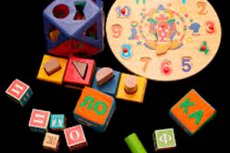Medical expert of the article
New publications
Development of logical thinking
Last reviewed: 29.06.2025

All iLive content is medically reviewed or fact checked to ensure as much factual accuracy as possible.
We have strict sourcing guidelines and only link to reputable media sites, academic research institutions and, whenever possible, medically peer reviewed studies. Note that the numbers in parentheses ([1], [2], etc.) are clickable links to these studies.
If you feel that any of our content is inaccurate, out-of-date, or otherwise questionable, please select it and press Ctrl + Enter.

Logical thinking is the process of using a rational, systematic series of steps based on mathematical procedures and test data to arrive at conclusions or solutions. In today's world, where decision-making is often complicated by multiple variables and uncertainty, developing logical thinking is a key skill for both personal growth and professional success.
The importance of logical thinking
Logical thinking is essential for critically analyzing problems and developing sustainable solutions. It helps improve math and science skills, stimulates intellectual development and deepens understanding of complex concepts. In the professional world, logical thinking is essential for analyzing data, strategic planning and effective project management.
How to develop logical thinking?
- Learning math and formal logic: Engage in math because it teaches you how to structure information and apply logical operations to solve problems.
- Games and puzzles: Play chess, Sudoku, crosswords and other logic games that train your ability to think analytically and plan strategically.
- Algorithmic thinking: Learning the basics of programming can help in understanding algorithmic processes and developing logical structuring of problems.
- Critical Reading: When reading texts, try to analyze arguments, identify assumptions, and evaluate the logic of conclusions.
- Problem Formulation and Problem Solving: Regularly practice formulating problems clearly and developing sequential steps to solve them.
- Philosophical discussions: Participation in philosophical discussions stimulates the development of logical skills and the ability to construct sound arguments.
- Reflection and self-reflection: Reflect on your decisions and mistakes, analyze cause and effect to see how you could have acted more logically.
- Exploring Scientific Methods: Science offers many examples of the application of logic to the study of patterns, testing hypotheses, and interpreting data.
Strategies for daily practice
- Ask questions: "Why?", "How?", and "What if?". These questions encourage deep analysis and logical thinking.
Develop a sequential mindset: When planning your day or completing tasks, try to approach things sequentially, building steps logically and prioritizing.
- Master decision-making techniques: Use techniques such as SWOT analysis (strengths, weaknesses, opportunities and threats) to logically evaluate different aspects of a problem.
- Apply abstract thinking: Learn to see general patterns and principles in different situations. This will help you better understand complex ideas and apply known concepts to new problems.
- Use mental models: Develop and use a variety of mental models to help you quickly analyze situations and draw valid conclusions.
Integration into education and the professional sphere
- Educational programs: Educational institutions should integrate logical thinking tasks into the curriculum from an early age.
- Professional training and development: Organizations can offer trainings and workshops on logical thinking as part of the professional development of their staff.
Practical tips for everyday life:
- Keeping a diary: Regular entries will help you reflect on the day's events, analyze actions and their consequences, which improves self-awareness and logical thinking.
- Meditation and mindfulness: Meditation techniques and mindfulness practices can help you concentrate better and think more clearly, which is an important aspect of logical thinking.
- Learning by teaching: Explaining material to others helps to better absorb information and develop the ability to think logically.
- Creativity: While creativity may seem like the opposite of logic, it can encourage flexibility of thought and the ability to see outside the box.
The impact of technology on logical thinking
Modern technologies offer tools for developing logical thinking. For example, Mind Mapping programs help to structure thoughts, and applications for solving logical problems and puzzles provide unlimited resources for training the mind.
Developing logical thinking is a process that requires constant practice and dedication. Through systematic study, games, critical thinking, and constant self-improvement, anyone can improve their logical abilities. Improving these skills not only contributes to better academic and professional success, but also provides the foundation for more informed and meaningful decision-making in everyday life.
It is also worth noting that the development of logical thinking is not limited to intellectual activities. Emotional intelligence and the ability to understand and manage one's feelings also play an important role in logically analyzing situations and making rational decisions.
Logical thinking is a fundamental skill that helps us not only in solving mathematical and scientific problems, but also in everyday life and in making important decisions. Its development is a long process involving continuous learning, self-reflection and practice. Investing time and effort in developing logical thinking can lead to significant improvements in quality of life, increased productivity, and overall intellectual growth.
Books on the topic: "Development of logical thinking"
"Developing Thinking" - Bruno Bettelheim (1991) In this book, Bettelheim discusses the importance of developing thinking and the factors that influence it in children.
"The Development of Intelligence: Interactive Structures of Consciousness" - Michael L. Cummis, Roo D. Jenkins (1995) Cummis and Jenkins present their theory of the development of intelligence and logical thinking.
"Logical Thinking and Its Evolution" - Karl R. Popper (1972) Karl Popper, philosopher and logician, examines logical thinking and its evolution.
"Developmental thinking and learning" - David Perloff (1986) This book explores how developmental thinking affects learning processes.

